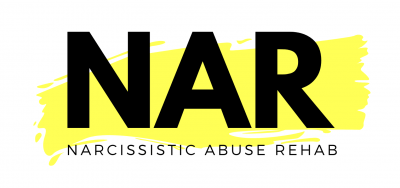More and more people are talking about narcissistic abuse, especially in schools where raising understanding can help students have better relationships and grow as people. Learning about the dynamics of narcissistic abuse is important for students because it helps them spot and deal with this kind of behavior. Let’s talk about the different types of narcissistic abuse and how we can teach our kids about them.
What is Narcissistic Abuse?
The psychological and mental abuse that people with narcissistic personality traits cause is called narcissistic abuse. People like this often have a skewed view of how important they are, need too much praise, and don’t care about other people. Abuse can happen in a lot of different types of interactions, like family, romantic, and work ones.
Recognizing Narcissistic Behavior
Helping students recognize narcissistic behavior is the first thing that needs to be done to teach them about narcissistic abuse. As a rule, narcissists:
● Show grandiosity: They think they are better than other people and should be treated differently.
● Lack empathy means they can’t or won’t understand how other people feel.
● Manipulate and control: To keep control over their victims, they use methods like gaslighting, guilt-tripping, and isolating them.
● Seek constant approval: They need praise and approval from the people around them all the time.
Students can better spot selfish behavior in their relationships if they know about these traits.
Strategies for Educating Students
Educating students about narcissistic abuse requires a comprehensive approach that includes awareness, prevention, and support.
Managing Academic Stress
Academic pressures can compound the stress of dealing with narcissistic abuse. In such a case, essay writing companies and assignment help services can provide valuable support by providing expertly written papers and guidance on how to complete complex assignments. Many overworked students often search online: “Shall I pay someone to do my essay online?”, seeking immediate relief from their academic responsibilities. However, it’s also important to provide academic counseling, time management workshops, and peer tutoring to help students manage their assignments more effectively and reduce overall stress.
Incorporating the Topic into the Curriculum
Integrating information about narcissistic abuse into the curriculum can help students recognize and understand the dynamics of such behavior. This can be done through:
● Psychology courses: Teaching students about personality disorders, including narcissistic personality disorder.
● Health and wellness programs: Including modules on mental health, emotional well-being, and healthy relationships.
● Workshops and seminars: Hosting events with experts who can provide deeper insights and real-life examples.
Encouraging Open Discussions
Creating a safe environment where students feel comfortable discussing their experiences and concerns is essential. Schools can:
● Promote open dialogue: Encourage students to talk about their feelings and experiences without fear of judgment.
● Provide support groups: Facilitate peer support groups where students can share and learn from each other’s experiences.
● Offer counseling services: Ensure that professional help is available for those who need it.
Empowering Students with Knowledge
Knowledge is power. Educating students about their rights and the resources available to them can empower them to take action if they encounter narcissistic abuse. This can include:
● Legal information: Educating students about their legal rights and protections against abuse.
● Resource lists: Providing information on local and national organizations that offer support and assistance.
● Self-Care Strategies: Teaching students about self-care techniques that can help them cope with stress and build resilience.
The Impact of Narcissistic Abuse
Narcissistic abuse can have profound and long-lasting effects on victims. Educating students about these impacts is crucial for fostering empathy and awareness.
Psychological Effects
Victims of narcissistic abuse often experience a range of psychological issues, such as:
● Low self-esteem: Continuous criticism and belittling can erode a victim’s self-worth.
● Anxiety and depression: The constant emotional turmoil can lead to severe mental health issues.
● Post-Traumatic Stress Disorder (PTSD): Victims may experience flashbacks, nightmares, and severe anxiety long after the abuse has ended.
Physical Effects
The stress and anxiety caused by narcissistic abuse can also manifest physically, leading to a variety of health issues including:
● Chronic stress: Persistent stress can weaken the immune system and lead to various health issues.
● Sleep disorders: Anxiety and fear can disrupt sleep patterns, leading to insomnia or other sleep disorders.
The Role of Technology in Education
In today’s digital age, technology can play a significant role in educating students about narcissistic abuse.
Online Resources
There are numerous online resources that can provide valuable information and support, such as:
● Educational websites: Websites that offer articles, videos, and interactive content on narcissistic abuse.
● Support forums: Online communities where victims can share their experiences and seek advice.
● Apps: Mental health apps that offer tools for managing stress, anxiety, and other psychological effects of abuse.
Social Media Campaigns
Schools can leverage social media to raise awareness and educate students about narcissistic abuse. This can include:
● Awareness campaigns: Creating campaigns that highlight the signs and effects of narcissistic abuse.
● Interactive content: Using quizzes, polls, and interactive posts to engage students and encourage them to learn more.
● Influencer partnerships: Collaborating with influencers who can share their experiences and reach a broader audience.
Conclusion
To create a safe and supportive school setting, teachers must teach students about how narcissistic abuse works. By teaching about it in school, encouraging open conversations, giving students power through information, and using technology, we can help students spot, understand, and effectively handle narcissistic abuse. This schooling not only helps people grow and be stronger, but it also makes society more understanding and aware.






